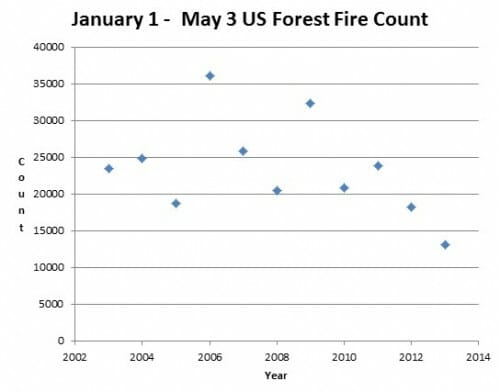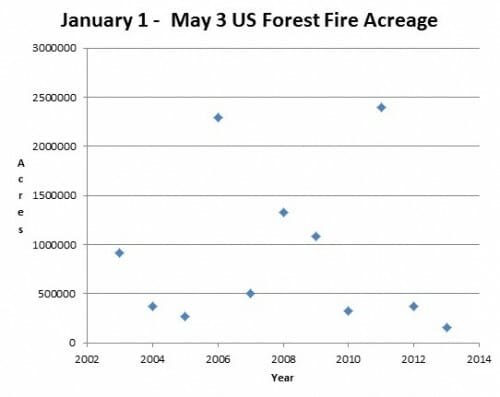I have had several emails this week about Kwanzaa, so I guess it is time for my annual Kwanzaa rant. This article has become an annual tradition at Coyote Blog, I guess to make sure I start the new year with plenty of hate mail.
The concept of a cultural celebration by African-Americans of themselves and their history is a good one. The specific values celebrated in Kwanzaa, however, suck. They are socialist -Marxist-collectivist-totalitarian crap. Everyone seems to tiptoe around Kwanzaa feeling that they have to be respectful, I guess because they are fearful of being called a racist. However, I find it terrible to see such a self-destructive set of values foisted on the African-American community. These values are nearly perfectly constructed to keep blacks in poverty - just look at how well these
same values have played out in Africa.
First, understand that I have no problem with people of any ethnic group or race or whatever creating a holiday. Life is worth celebrating, as often as possible, even if we have to make up new occasions. One of the great things about living in Arizona is getting to celebrate Cinco de Mayo.
Second, understand that Kwanzaa is not some ancient African ethno-cultural tradition. Kwanzaa was made up in 1966 by Dr. Maulana Karenga. Karenga was a radical Marxist in the 60's black power movement. Later, Karenga served time in jail for torturing two women:
Deborah Jones ... said she and Gail Davis were whipped with an electrical cord and beaten with a karate baton after being ordered to remove their clothes. She testified that a hot soldering iron was placed in Miss Davis' mouth and placed against Miss Davis' face and that one of her own big toes was tightened in a vice. Karenga ... also put detergent and running hoses in their mouths, she said."
Interestingly, after this conviction as well incidents of schizophrenia in prison where "the psychiatrist observed that Karenga talked to his blanket and imaginary persons and believed that he had been attacked by dive-bombers," California State University at Long Beach saw fit to
make him head of their Black Studies Department.
Anyway, I give credit to Karenga for wanting to create a holiday for African-Americans that paid homage to themselves and their history. However, what Karenga created was a 7-day holiday built around 7 principles, which are basically a seven step plan to Marxism. Instead of rejecting slavery entirely, Kwanzaa celebrates a transition from enslavement of blacks by whites to enslavement of blacks by blacks. Here are the 7 values, right from the Kwanzaa site (with my comments in red itallics):
Umoja (Unity)
To strive for and maintain unity in the family, community, nation and race
On its surface, this is either a platitude, or, if serious, straight Marxism and thoroughly racist. Think about who else in the 20th century talked about unity of race, and with what horrible results.
In practice, the notion of unity in the black movement has become sort of a law of Omerta -- no black is ever, ever supposed to publicly criticize another black. Don't believe me? Look at the flack Bill Cosby caught for calling out other blacks.
Kujichagulia (Self-Determination)
To define ourselves, name ourselves, create for ourselves and speak for ourselves
Generally cool with me -- can't get a libertarian to argue with this. When this was first written in the 60's, it probably meant something more
revolutionary, like secession into a black state, but in today's context I think it is fine.
Ujima (Collective Work and Responsibility)
To
build and maintain our community together and make our brother's and
sister's problems our problems and to solve them together
Um, do I even need to comment? This is Marxism, pure and simple.
Ujamaa (Cooperative Economics)
To build and maintain our own stores, shops and other businesses and to profit from them together.
OK, I said the last one was Marxism. This one is really, really Marxism.
Nia (Purpose)
To
make our collective vocation the building and developing of our
community in order to restore our people to their traditional greatness.
There's that collectivism again
Kuumba (Creativity)
To
do always as much as we can, in the way we can, in order to leave our
community more beautiful and beneficial than we inherited it.
I guess I don't have much problem with creativity and make things better. My sense though that if I was to listen to the teaching on this one in depth, we would get collectivism again.
Imani (Faith)
To
believe with all our heart in our people, our parents, our teachers,
our leaders and the righteousness and victory of our struggle.
What about in ourselves as individuals? Through all of this, where is the individual, either individual responsibility or achievement? It is interesting that a holiday that
was invented specifically to be anti-religious would put "faith" in as a value. In fact, Karenga despised the belief in God as paying homage to "spooks who threaten us if we don't worship them and demand we turn
over our destiny and daily lives."
However, this is in fact very consistent with the teachings of most statists and totalitarians. They tend to reject going on bended knee to some god, and then turn right around and demand that men go on bended knee to ... them, or other men. This is in fact what this "faith" was about for Karenga - he is a statist laying the foundation for obedience to the totalitarian state. He wants blacks to turn over their destiny and daily lives to their leaders, not to god.
So, in conclusion, Kwanzaa was designed as a celebration of creating a totalitarian collectivist Marxist racist state among African-Americans. I may well get comments and emails that say "oh,
thats not how we celebrate it" and I will say fine - but Marxism is the core DNA of the holiday, a holiday created by a man who thought Lenin and the Black Panthers were all wimps.
Never wishing to criticize without suggestion a solution, here are alternate values I might suggest:
Freedom
-Every individual is his own master. We will never accept any other master again from any race (even our own). We will speak out against injustices and inequalities so our children can be free as well.
Self-Reliance - Each individual will take responsibility for their life and the lives of their family
Pride - We will be proud of our race and heritage. We will learn about our past and about slavery in particular, so we will never again repeat it.
Entrepreneurship - We will work through free exchange with others to make our lives better and to improve the lives of our children
Education - We will dedicate ourselves and our time to education of our children, both in their knowledge and their ethics
Charity - We will help others in our country and our community through difficult times
Thankfulness - Every African-American should wake up each morning and say "I give thanks that my ancestors suffered the horrors of the slavery passage, suffered the indignity and humiliation of slavery, and suffered the poverty and injustices of the
post-war South so that I, today, can be here, in this country, infinitely more free, healthier, safer and better off financially than I would have been in Africa."
By the way, if you doubt that last part, note that in the late 90's, median per capita income of African Americans was about $25,000, while the per capita income of Africans back in the "old country" was around $700, or about 35x less. Note further this comparison of freedom between the US and various African nations. Finally, just read the news about the Congo or Rwanda or the Sudan.
Update: Even years later, commenters insist on misinterpreting this last point as some sort of justification for slavery. I am not sure how one can come to this conclusion in an article that drips with disdain for slavery, but folks will find what they want to find. My mistake perhaps was to presume to speak for African Americans. It is very possible that the enslavement of their ancestors and the legacy of racist crap that still exists in this country is not balanced by the prosperity blacks now enjoy in America vs. Africa. So I will merely speak for myself and say the rest of us are immeasurably better off for having you here.





